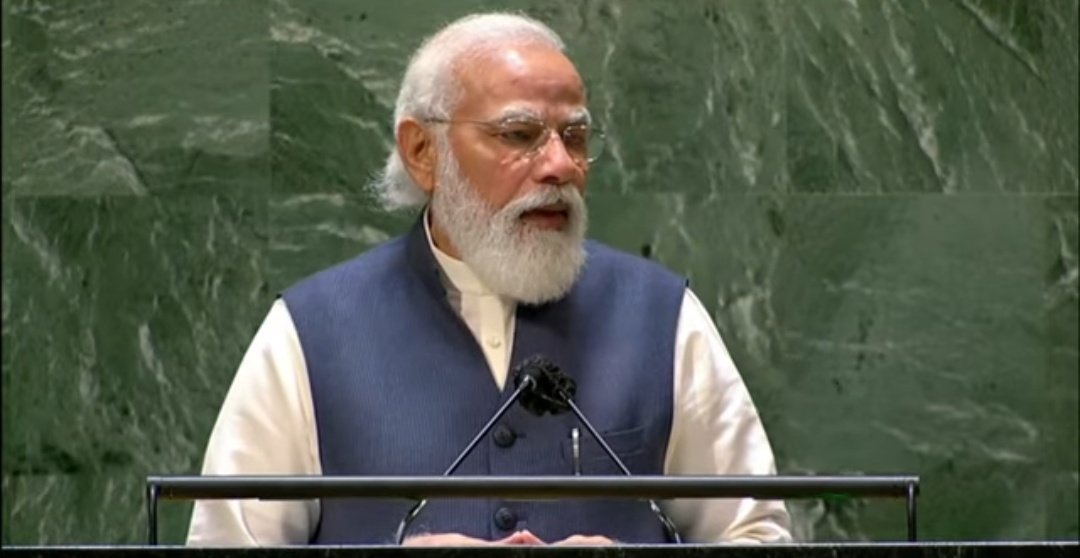New Delhi, 25 September: Prime Minister Narendra Modi cautioned the world community that terrorism, extremism and regressive ideologies threaten the whole world and countries using terrorism as a political weapon should desist from it.
Addressing the 76th session of the United Nations General Assembly (UNGA) on Saturday, without naming Pakistan, Modi said that countries which are using terrorism as a political weapon should understand that terrorism is an equally big threat to them.
Referring to the developments in Afghanistan, he said that it should be ensured that the soil of Afghanistan is not used for spreading terrorism and terrorist attacks.
Prime Minister Modi criticized the inaction of world institutions like the United Nations (UN) on the developments in Afghanistan, saying it has put a question mark on their relevance and credibility.
He said that the UN could not play an effective role in relation to climate change, the corona epidemic and developments in Afghanistan.
The Prime Minister criticized the inaction of the United Nations in tracing the origin and origin of the Corona pandemic.
Modi, however, did not mention China as a possible origin of the pandemic. Modi said that with this once again the need to reform the United Nations and strengthen the system of functioning of the world is being felt.
The Prime Minister quoted the ancient thinker Chanakya and said that the rulers and policy makers should take timely decisions, those who do not decide on time, time destroys them.
Drawing the world’s attention to the danger of orthodox and extremist thinking, Prime Minister Modi said that in the present situation, we have to make progressive thinking based on science and logic the basis of development.
Referring to India’s cultural diversity and democratic system, Modi said that due to diversity, Indian democracy continues to remain alive. Describing the democratic system as an enabling basis, he said that success and achievements can be achieved through democracy.
He emphatically said that success and achievements have been achieved through democracy.
The Prime Minister set himself as an example in relation to the victory march of democracy where did a child who helped his father reach the tea stall at the railway station, he said.
He said that he was the longest-serving Chief Minister of Gujarat and for the last seven years he has been the Prime Minister of the world’s largest democracy. In this capacity, he has addressed the UNGA four times.
Modi mentioned Pandit Deendayal Upadhyay, a nationalist thinker and a pioneer of Integral Humanism, whose birth anniversary is today.
He said that Integral Humanism connects the individual with the society, the country and the entire humanity.
Emphasizing on the philosophy of Antyodaya, Modi said that our path of development is focused on the goal that no one is left behind.
Presenting the details of the schemes for public welfare during his Prime Ministership, Modi said that we are striving for building a just and equitable society. Our policies are all pervasive, all touching, all inclusive and all nutritious.
Emphasizing on the conservation of marine resources and maritime security, Modi said that shipping is the lifeline of world trade. Maritime shipping must comply with international rules and laws. Without naming China, he said that we have to protect the maritime sector from the tendency of expansionist efforts and monopolies.
The Prime Minister ended his address with lines from a poem by Gurudev Rabindranath Tagore. The meaning of the lines was that we should depend on good deeds. All kinds of weaknesses and doubts will vanish. In this context, he said that these lines of Gurudev are a guide for the whole world and on the basis of these the world can remain peaceful, safe and prosperous.
Referring to the success of India’s professionals spread across the globe, the Prime Minister said that they have synergized science, technology and democratic values.





